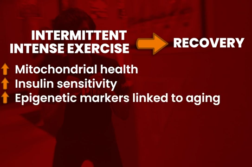ORLANDO, Fla. (Ivanhoe Newswire) — Fifteen million people have some type of surgery every year in the US. For those who are deciding or have already decided to go under the knife, Ivanhoe has some questions you should ask before heading into the OR.
From hip and knee replacements to back and heart surgeries, millions of procedures are performed every year. But what should you ask your doctor before going under the knife? First, find out if the surgery is really necessary.
Gregory Gasbarro, MD, Orthopedic Shoulder Surgeon at Mercy Medical Center says, “If it gets to the point where they’re miserable, can’t sleep at night, then we mutually make the decision to proceed with the surgery.”
Doctors estimate 11 percent of medical procedures are unnecessary. Ask why the procedure is needed, are there any other treatments, is surgery typically recommended for your condition, and what would happen if you don’t have the surgery. Next, find out what to expect after surgery. Ask how many people out of 100 with your condition who get this surgery typically feel better afterward, what’s the likelihood that you will fully recover and what the cost would be. Then get a sense of your surgeon’s skills by asking them how many of these procedures they have performed. Finally …
Parag Sanghvi, MD, MSPH Associate Professor at UCSD says, “If there’s ever a time where you feel like yes, something’s just not right here, get that second opinion, find somebody who may be a better fit for you.”
Especially, if your current doctor is not proposing any alternatives.
And, if you have already had your surgery, doctors say one of the biggest mistakes is doing too much too soon. So, be sure to follow your post-surgical instructions for best long-term recovery.
Contributors to this news report include: Milvionne Chery, Producer; Roque Correa, Editor.
Sources:
https://www.facs.org/for-patients/strong-for-surgery/
https://journals.plos.org/ploso ne/article?id=10.1371/journal.pone.0181970
https://www.nytimes.com/2022/10/20/well/live/prepare-for-surgery.html
https://wvgeneralsurgery.com/mistakes-after-surgery-that-slow-your-recovery/
WHAT TO ASK BEFORE GOING UNDER THE KNIFE
REPORT #3052
BACKGROUND: There are many reasons to have surgery. Some operations can relieve or prevent pain. Others can reduce a symptom of a problem or improve some body function. Some surgeries are done to find a problem. For example, a surgeon may do a biopsy, which involves removing a piece of tissue to examine under a microscope. Some surgeries, like heart surgery, can save your life. Some operations that once needed large incisions can now be done using much smaller cuts. Globally, a staggering 310 million major surgeries are performed each year; around 40 to 50 million in USA and 20 million in Europe. It is estimated that 1 to 4% of these patients will die, up to 15% will have serious postoperative morbidity, and 5 to15% will be readmitted within 30 days.
(Sources: https://medlineplus.gov/surgery.html
https://www.ncbi.nlm.nih.gov/pmc/articles/PMC7388795/)
DIAGNOSIS: There are four ways you can identify whether it’s time for you to schedule your surgery: (1.) it may be time to get surgery if you’ve tried to manage the pain through non-surgical methods without success, (2.) if your pain or condition is getting worse, (3.) if your quality of life is declining, and (4.) if your doctor advises that surgery is your best option. Millions of Americans will undergo surgery each year. It is important to be informed about the surgery being recommended, particularly if it is elective surgery (an operation you choose to have done), rather than an emergency surgery. All surgeries have risks and benefits. It’s important to understand them before deciding whether the procedure is appropriate for you. Here are some questions to ask before going under the knife: What is the operation being recommended? Why is the procedure needed? What are my alternatives to this procedure? What are the benefits of the surgery and how long will they last? What are the risks and possible complications of having this operation? What can I expect during recovery.
(Sources: https://www.carrumhealth.com/blog/4-ways-decide-time-get-surgery/
https://www.hopkinsmedicine.org/health/treatment-tests-and-therapies/questions-to-ask-before-surgery)
NEW REGULATIONS: Your doctor will discuss with you what factors will influence whether your surgery should be done now or delayed. There are many surgical procedures that are not an emergency. Examples may be cataract surgery, knee or hip replacements, hernia repair, or some plastic or reconstructive procedures. Your doctor will determine if your condition will worsen without the surgery and whether other treatments are available. Your doctor will also assess the individual risk to you by coming to the hospital, office, or surgery center for surgery during the pandemic. They will also consider the extent of COVID-19 in your community including the hospital’s capacity.
(Source: https://www.facs.org/for-medical-professionals/covid-19/clinical-guidance/patient-guide/)
* For More Information, Contact:
Dan Collins
Free weekly e-mail on Medical Breakthroughs from Ivanhoe. To sign up: http://www.ivanhoe.com/ftk



